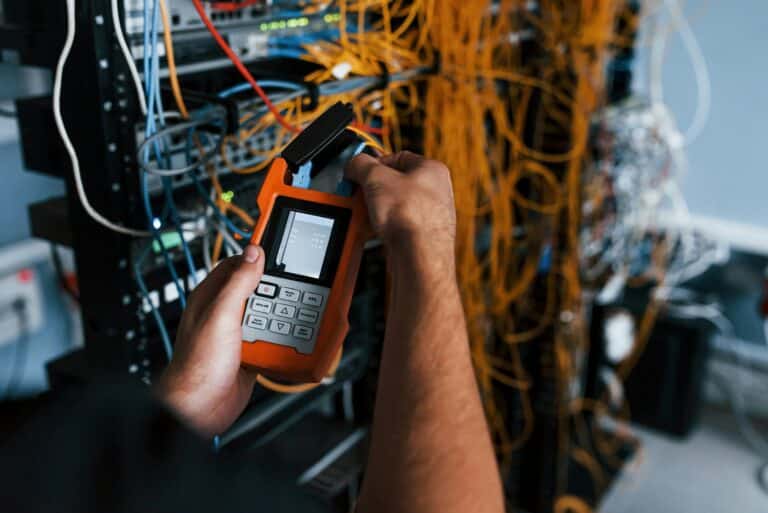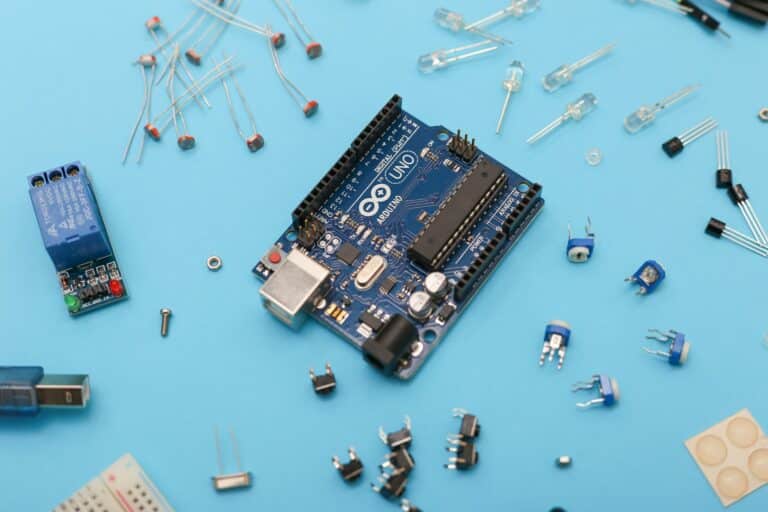Data destruction is a topic that often flies under the radar, but it’s more important than ever for residents and businesses in Augusta. As technology continues to advance, so does the amount of sensitive information stored digitally. Imagine a scenario where important personal or business data falls into the wrong hands due to improper disposal of old devices. This is where understanding and implementing proper data destruction becomes vital. Whether you’re a business owner with customer data on ancient computers or an individual with years’ worth of personal information on an unused laptop, knowing how to destroy data securely is crucial.
In Augusta, protecting your information isn’t just a matter of convenience; it’s a necessity. The area has seen a steady growth in technology usage across various sectors, increasing the chances of data breaches from improperly managed assets. With this growing digital footprint, it becomes essential for residents and businesses to understand the importance of data destruction. By taking this step, you not only ensure your privacy but also support wider efforts to combat identity theft and maintain a secure community.
Understanding Data Destruction
So, what exactly is data destruction? At its core, it’s the process of ensuring that data on digital storage devices is permanently destroyed so it can’t be recovered. This step is key in safeguarding sensitive information from unauthorized access once you decide to dispose of your old gadgets. Envision your personal details—addresses, financial records, social security numbers—being accessible to anyone after you toss out an old hard drive. That’s the kind of risk proper data destruction helps you avoid.
Here are some common types of data that need careful attention:
– Personal data: Includes your personal identification numbers, addresses, and health information.
– Business data: Customer databases, employee records, and business strategies that could compromise competitive edges.
– Financial records: Bank statements and financial transactions that could be exploited if mishandled.
Understanding what’s at stake helps you recognize the necessity of destroying data before getting rid of devices. By doing so, you protect yourself, your business, and your community from potential risks.
Methods of Data Destruction
When it comes to safely getting rid of old gadgets, it’s helpful to know the main methods for destroying data. Choosing the right one can depend on your specific needs and the kind of data you’re dealing with. Let’s explore a few popular options.
1. Shredding: Physical destruction by shredding ensures that data storage devices are irreversibly destroyed. This method is extremely effective for hard drives and other physical media. The downsides? It can be costlier and might not be great for the environment, as it produces electronic waste.
2. Degaussing: This method uses a powerful magnetic field to disrupt the data on magnetic media, such as hard drives and tapes. It works wonders in making data unrecoverable. However, it’s not suitable for all devices, and specialized equipment is required.
3. Software-Based Destruction: This involves using software tools to overwrite data on storage devices multiple times. It’s cost-effective and eco-friendly, but it does take more time to ensure complete data wiping.
Choosing the best method can depend on factors like cost, environmental concerns, and the types of media you need to destroy. Always weigh the pros and cons before making a decision.
Legal and Compliance Considerations
In Augusta, as in the rest of the U.S., data destruction isn’t just about protecting your personal or business information—it’s also about adhering to legal standards. Federal laws, such as the Health Insurance Portability and Accountability Act (HIPAA) for medical data and the Gramm-Leach-Bliley Act (GLBA) for financial information, impose strict guidelines on how specific data should be destroyed.
Not following these rules can lead to serious legal consequences, not just for businesses but for individuals too. Consider this: a local business was fined heavily due to a data breach that occurred from improperly disposed of customer records. Ensuring compliance means you protect yourself legally and maintain trust with clients and customers.
Given the complexity of these regulations, it’s often wise for businesses to consult with legal professionals familiar with both local and federal laws. By staying informed, you help protect your company from potential fines and ethical breaches.
How to Choose a Reliable Data Destruction Service
Selecting a top-notch data destruction service is more than just a Google search. It’s essential to find a provider in Augusta that meets all your data security needs. Here’s a quick guide to help you decide:
– Certifications: Check whether the provider holds relevant certifications. This ensures they follow industry-recommended practices and use secure methods.
– Customer Reviews: Look for reviews or testimonials to gauge their reliability and quality of service. A bit of research can save a lot of trouble later on.
– Service Options: Ensure they offer the data destruction method that fits your needs, whether it’s shredding, degaussing, or software-based.
– Experience: Consider the provider’s track record in the industry. Experienced companies are likely to have more refined processes.
A trusted service not only guarantees that your data is destroyed securely but also provides peace of mind knowing you’ve safeguarded against data breaches.
Conclusion
The importance of data destruction in Augusta is clear. By understanding the risks and methods involved, individuals and businesses can protect themselves against unauthorized data access and potential legal issues. The increasing presence of technology in everyday life makes it even more necessary to ensure proper data disposal processes are in place.
Being proactive about data destruction helps to maintain privacy and uphold the trust of clients and business partners. This ongoing commitment to data security not only supports a safer community but also ensures you comply with regulations designed to keep sensitive information out of the wrong hands. Everyone has a role to play in keeping data safe, so it’s essential to stay informed and take action whenever technology is upgraded or old equipment is decommissioned.
Stay ahead in safeguarding your sensitive information with responsible electronics waste disposal. To ensure your data is securely and permanently handled, explore the tailored solutions offered at Beyond Surplus for electronics waste disposal. Protect your privacy and avoid potential breaches by choosing a reliable partner in data security. Visit us to discover how we can assist you in maintaining confidentiality and compliance.


